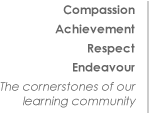
Economics
Curriculum Intent
The Imberhorne Business and Economics department is a dedicated and hardworking team who aim to inspire their students to a lifelong love of learning, aiding their character development. We instil passion in our students by having varied, up to date and relevant lessons which will develop their enthusiasm in the world around them. The department works together closely to make sure we work to our strengths, giving our students the best learning experience in and out of the lessons
The teaching of Business and Economics at Imberhorne aims to develop the knowledge, skills, concepts, values and attitudes that prepare our students for further study or their life beyond education. We feel that our courses are carefully selected with the students in mind. Consequently, as a department we constantly change with the times and update our courses we offer accordingly, with the needs of the students in mind.
Why choose Economics?
This is a fresh, original and revamped course that many students will find both stimulating and broad in content. It is a ‘live’ course in that the ‘issues’ are constantly changing. The dominant news item may be high oil prices this week, rising house prices next week and the effects of low interest rates the week after.
The issues are clearly varied but always topical. Studying Economics will give you a new perspective on everyday life! This course will give you the skills and analysis to understand every decision that is made by yourselves e.g. why are petrol prices falling so fast? Why does this affect the UK and Russian economy?
Apart from the nature of the material studied, some of which is controversial, the attraction of the course is that it provides you with the opportunity to study primarily Economics with elements of Business Studies. The expected outcome is that you will have acquired broad insights into the ‘real world’ workings of the Economy and its Business components. The course will appeal to students who would enjoy studying a subject that affects their everyday lives, who have lively and enquiring minds and have a desire to explore new ideas and communicate them effectively.
Things to think about:
Does immigration to the UK reduce and increase unemployment?
Why is Tesco’s profit failing?
Why are dairy farmers struggling in the UK yet we pay less for milk?
Why are interest rates so low?
How does a government control an economy and what do they look to achieve?
Can buying goods ever make us happy?
Does advertising work?
Why is Apple so successful?
Why do footballers earn so much money?
Why is there still poverty in the world?
When will China become the richest country in the world?
Why are antibiotics running out and why has an economist been asked to lead the fight on this?
How do companies discriminate in prices?
Why has the government now included illegal drugs and prostitution in measures for standard of living?
Staff Information
| Name | Position / Responsibility | |
|---|---|---|
| Mr C Mumby | Leader of Learning for Economics & Business Studies | cmumby [at] imberhorne [dot] co [dot] uk |
| Miss S McCarthy | Economics & Business Teacher & Joint Deputy Head of Sixth Form | smccarthy [at] imberhorne [dot] co [dot] uk |
FAQs
What is Economics?
It is how resources are allocated, like why do footballers earn so much money? Why is there still starvation in the world in 21st century and what has gone so wrong at Tesco’s among other things.
What can you go on to after studying A Level in this subject?
Economics is a highly regarded subject with many post A Level opportunities in both higher education (degrees) and employment, e.g. banking and finance, in addition to post degree employment in both the private and public sector.
How useful will it be?
You will learn and use a wide range of transferable skills throughout the course, including analysing and evaluating business and economic information from different sources, developing written communication skills and learning how to solve problems. Such skills are in great demand and are recognised by employers, universities and colleges as being of great value.
What skills do I need to have to study Economics?
To study this subject you will need a minimum of five GCSE subjects at Grade 9-4, including English Language and Mathematics, plus a determination to work hard and achieve success at the highest level possible.
Is there a lot of Maths?
The A Level uses Maths skills such as interpreting graphs and data and percentage change but that is about it - which is why the entry requirement is a grade 5 in Maths at GCSE

